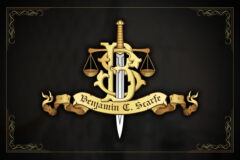Frequently Asked Questions
Q: What does it mean to be released on bail or on my own recognizance (ROR)?
A: When you are released on bail, you provide a set amount of money or collateral to ensure you appear in court. In contrast, a release on your own recognizance (ROR) means that you are released without having to post bail, based solely on your promise to return for future court appearances. In either case, the decision is guided by a thorough review of your circumstances and the nature of the charges.
Q: How is my eligibility for ROR determined?
A: As part of the release process, probation officers will conduct a public safety assessment. This assessment evaluates factors such as your criminal history, ties to the community, and the specifics of the alleged offense. Based on this evaluation, you will be given a release recommendation score on a scale from 1 to 5:
- 1: Low public safety risk
- 5: High public safety risk
This score helps the court determine whether you should be released on ROR or if bail is necessary.
Q: What does the public safety assessment score mean?
A: The score is an indicator of the level of risk you might pose to the community if released:
- Scores 1-2: Indicate a lower risk and may support a recommendation for ROR.
- Scores 3-5: Suggest a higher risk level, which might result in bail being required to ensure public safety and secure your appearance at future court dates.
Q: Where can I check the status of my criminal case?
A: You can search for your case status online through the Sacramento County Court’s Public Case Access tool: Search by Case Number
Q: How do I find inmate information if someone has been arrested?
A: Inmate information is available through the Sacramento Sheriff’s Department website: Search Inmate Names
If you have any further questions or need assistance understanding your release conditions, please don't hesitate to contact our office. We're here to help guide you through every step of the process.
